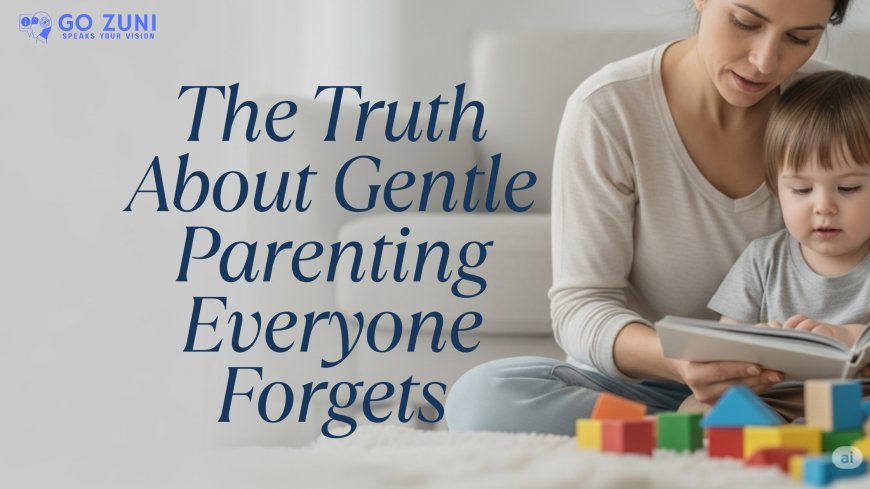Why Is Everyone Talking About Authoritative Parenting Lately?
Why is authoritative parenting suddenly trending? Explore how it shapes family dynamics, supports modern parenting, and why it resonates—even with busy IT pros.

You know those days when work is hectic, your inbox is overflowing, and then you come home to your child melting down over broccoli? Yeah, been there. As someone navigating both the ever-evolving tech world and the even more unpredictable world of parenting, I started hearing more and more about this thing called authoritative parenting. At first, I thought, Is this just another buzzword like Tiger Parenting or gentle parenting? But the more I looked into it, the more it made sensenot just for family life, but for the kind of balanced, thoughtful approach we often strive for in IT, too.
So why is authoritative parenting suddenly the hot topic in parenting groups, on podcasts, and even in watercooler chats (or Slack channels)? Lets dive in.
The Rise of Conscious Parenting Styles in a Noisy World
Todays parents are overwhelmedwith information, advice, and lets be honest, opinions. From the rigid expectations of Tiger Parenting to the laid-back vibe of soft parenting, were flooded with options. But for many families, especially single parents or those managing complex co-parenting situations, extremes just dont cut it anymore.
Authoritative parenting offers a middle path. Its about high warmth and high expectations. Think respectful parenting meets positive discipline. You set firm limits, but you also explain the why behind them. You enforce natural consequences without resorting to shouting matches. And that balance is what many are craving in a chaotic world.
What Sets Authoritative Parenting Apart?
Heres the core of it: authoritative parenting blends structure with empathy.
Unlike authoritarian parenting (which demands obedience without explanation) or permissive parenting (which avoids conflict at all costs), authoritative parenting values understanding and cooperation.
Its not about being your childs best friend or their drill sergeant. Its about being their guide.
You lay down parenting guidelines clearlybut youre open to conversation. You explain the reasons behind rules, model mindful parenting, and encourage your child to take responsibility for their choices.
Example:
If your child refuses to do homework, instead of yelling or giving in, you calmly explain that unfinished work means no screen time tonighta natural consequence they can connect to. Over time, they learn accountability, not fear.
Why Tech Parents (Yes, You!) Are Embracing It
I work in IT, where logic, systems, and long-term problem-solving are the daily grind. Parenting, as you probably know, doesnt always follow that same logic. But authoritative parenting actually mirrors the kind of leadership we use in agile teams: clear expectations, collaboration, and respectful feedback loops.
And for tech professionals balancing demanding work schedules with home life, this approach just works. It reduces chaos. It minimizes emotional burnout. It aligns with how we troubleshoot: test, learn, adapt.
Plus, it plays well with real-world family dynamics, especially in households where both parents workor where a single parent is wearing all the hats.
The Intersection of Gentle and Firm
If youve explored gentle parenting or soft parenting, youll notice some overlap with the authoritative model. All these parenting approaches promote empathy, but authoritative parenting adds that extra structure many parents find missing in the more permissive frameworks.
It says, I see your feelings and Im still holding this boundary.
For instance, when your child is upset because they cant have another cookie before dinner, you acknowledge the disappointment but hold firm. I get that youre frustrated. Dinners in 15 minuteswell save the cookie for after. Simple. Respectful. Grounded.
What the Experts Are Saying
Child psychologists and developmental experts consistently point to authoritative parenting as the most effective, research-backed method for raising emotionally intelligent, responsible kids.
Its also flexible. It grows with your child. What starts as reminders and choices for your toddler turns into collaborative rule-setting for your teen. And the key? Your child feels heard, even when the answer is no.
In studies, kids raised with authoritative parenting tend to have higher academic success, better mental health, and stronger social skillsskills that translate to adult life in a big way.
A Breath of Fresh Air in the Age of Shouting
Lets be realparenting gets loud. Especially after a long workday, when your patience is already stretched thin. But the beauty of authoritative parenting is that it teaches you to self-regulate, too.
By focusing on respectful parenting, you model calm problem-solving. You stop fights before they spiral into shouting matches. You build a home environment that feels safenot just physically, but emotionally.
Thats the kind of atmosphere where kids thrive. And frankly, its the kind of home that feels like a refuge after a stressful day at the office (or on Zoom).
Final Thoughts: It's Not About Being PerfectJust Present
If youre a parent whos juggling career deadlines, team meetings, and bedtime stories, authoritative parenting isnt just a trending topicits a lifeline.
You dont need to have all the answers. You just need to show up with understanding, set clear limits, and stick to natural consequences when needed. Over time, you build trust, respect, and yesreal connection.
So the next time you find yourself googling parenting guidelines between code deployments or client calls, remember: youre not alone. And authoritative parenting might just be the thoughtful, balanced approach your family has been looking for.

































